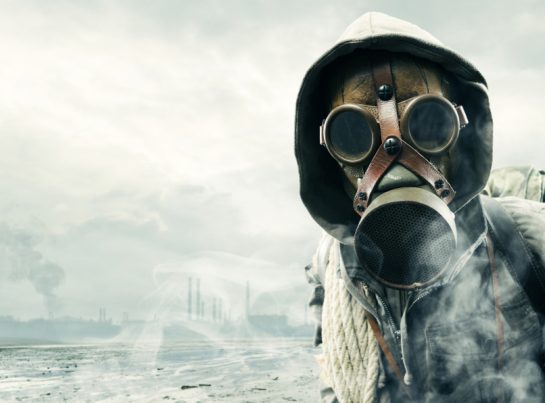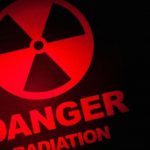
Do you know what to do in the event of a nuclear attack? 11 things you need to consider to help you survive
Friday, July 20, 2018 by Frances Bloomfield
http://www.nuclear.news/2018-07-20-do-you-know-what-to-do-in-the-event-of-a-nuclear-attack-15-things-you-need-to-consider.html

With the way things are going, nuclear war almost seems like an inevitability. The world may be going down the toilet, but you don’t have to get caught unawares by nuclear war. You can and should prepare for it, and here’s what you should keep in mind while you do just that. (h/t to BioPrepper.com.)
- The plan – Essentially, the plan is to get you out of dodge once a nuclear attack happens. You should have an idea of how to do that depending on where you are, whether at home or on the road. As a rule of thumb, you have 10 to 20 minutes to get out of the vicinity of a nuclear attack. This would largely depend on the size of the weapon used and the location where it went off. You should be at least a mile away from the blast in that time frame, because come 20 minutes, the radiation will go straight down. That’s why you should have your escape routes and, if any, escape vehicles all planned out.
- Your area – Familiarize yourself with your area so that you can make a speedy exit when needed.
- Your family – All members of your family should be aware of the plan too, especially since there’s a high chance that you may not all be together in the same place when a nuclear weapon hits. If and when that happens, ensure that you’ve all agreed on a specific point to safely meet and travel from together.
- Your shelter – The further away from the blast site your shelter, the better. If this turns out to be your own home, then be sure that the walls and roof are thick enough to provide the necessary protection from fallout particle rays. Concrete, bricks, and lumber are suitable building materials. If you need to move away from your home, then a basement, subway, tunnel, or the inside hallway of a large building will suffice.
- Personal protection – According to Survivopedia.com, you’ll want to invest in Geiger counters (to measure gamma rays and x-rays), Kearny fallout meters (to detect fallout radiation), and dosimeters (to gauge radiation exposure). You can also go whole hog and purchase hazmat suits which, although pricey, will be incredibly useful and invaluable in the long run.
- Weaponry – Guns are ideal, but just in case you’re unable to obtain these, you can opt for a wide variety of alternative weapons instead. Knives, axes, bows, and even pellet guns can make for good weapons. In the right hands, a shovel, a baseball bat, and a meat tenderizer will be more than enough to protect you from danger.
- Construction tools – Unless your shelter is capable of repairing yourself, you’ll need to do some maintenance work every now and then. For this, you’ll need the basics that comprise every builder’s toolbox, such as nails, hammers, ladders, and pliers.
- Food and water – Aim to stock up on at least six months’ worth of food and water. Canned foods are perfect for this due to their long shelf lives and the protection provided by their containers. If you can get your hands on some Meals, Ready-to-Eat (MREs) then you should add these to your food supply. As for water, make it a point to store it in covered containers to reduce the risk of contamination from fallout particles.
- Medical supplies – On top of a basic first aid kit, you can take better care of yourself by stocking up on supplements too. In particular, you’ll want immune system-boosting ones such as probiotics and vitamins E and C. Take things up a notch by buying potassium iodide, which is meant to help your body expel radioactive 131 particles. Whichever supplements you plan on stashing away, try to purchase enough to last you 100 days. (Related: The Top 14 Supplements for Radiation Protection.)
- Cleaning and sanitation supplies – Apart from ensuring that your shelter is free from grime, soaps and cleaners will do a good job of minimizing contamination. Besides soap, you should stockpile vinegar, baking soda, borax, and bleach as well. These are for if and when you run out of soap and need to make your own cleaning recipes.
- Books and reading materials – An absolute must if you’re going to be hunkering down in a basement for a few good days. These will keep you entertained and distracted until things tide over.
The idea of a nuclear weapon being dropped on your town isn’t a pleasant one, but it’s something you need to consider to prepare yourself. Prepping isn’t easy work, but it’s rewarding.
Stay on top of the madness of the world by visiting Chaos.news today.
Sources include:
Tagged Under: Tags: chaos, nuclear attack, nuclear disaster, nuclear radiation, nuclear war, nuclear weapons, preparedness, prepper, prepping, protection, SHTF, survival, survival skills, survival tools





